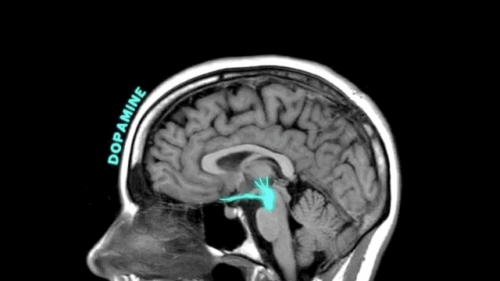Having More Sex Just Might Reduce Binge Eating
If you’re looking to lose weight, having sex is supposedly a good place to start as it can burn up to 100 calories a sesh.
But researchers have also found that for some people it can also help to stop binge eating.
The research from York University in the United Kingdom was presented at the Annual Meeting of the Society for the Study of Ingestive Behavior and revealed that the “love hormone” oxytocin may help decrease appetite.
Oxytocin is a hormone that is released after sex to induce feelings of affection and trust, and bonds couples together. The study found that people who are genetically less able to produce oxytocin are more likely to indulge in sweet treats.
Because the hormone gives us a feeling of “reward”, the researchers were keen to find out if it had any affect on binge eaters, because these peoples’ brains are suspected to be abnormally wired in the way they accept personal rewards.
The Study
They studied a group of sexually active adults aged between 27 and 50, including some who admitted to habitually binge eating. The participants were asked to give details about their eating habit and their preferences for certain kinds of foods, including whether they had a preference for sugary or fatty treats, and also how they responded to punishments and rewards.
Blood samples were collected from every participant so researchers could study their DNA to determine how their oxytocin receptor gene (OXTR) functioned. They also examined how and if different variations of the gene had any influence over appetite, food intake, food preferences and personality traits.
The researchers noticed that a pattern emerged, where participants with certain variations along their OXTR gene also had the personality traits of a serious binge eater. This was found in seven sites in participants’ DNA where the chemical instructions for making OXTR could vary between individuals, known as ‘single nucleotide polymorphisms’ (SNPs).
They discovered that the SNPs were linked to psychological risk factors associated with binge eating.
The lead researcher, Dr Caroline Davis, said: “Three SNPs were significantly related to the psychological traits, which collectively accounted for 37 per cent of the variance in overeating.
“Oxytocin enhances prosocial and related behaviors. Increases in oxytocin tend to decrease appetite – especially the consumption of sweet carbohydrates,” she said
The research suggests that individuals may respond to a flood of oxytocin differently, depending on genetics
But the takeaway for those who are binge eaters is that next time you are craving something sweet, a roll in the hay might be a better option instead.
Sounds like a great idea to us!
from Stay at Home Mum https://www.stayathomemum.com.au/my-lifestyle/more-sex-might-just-reduce-binge-eating/




Comments
Post a Comment